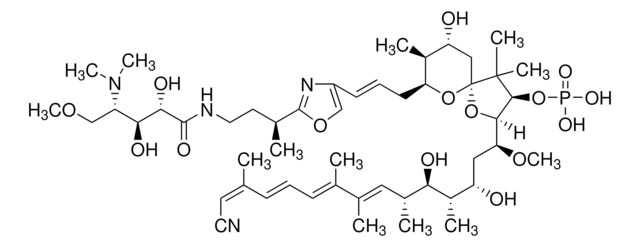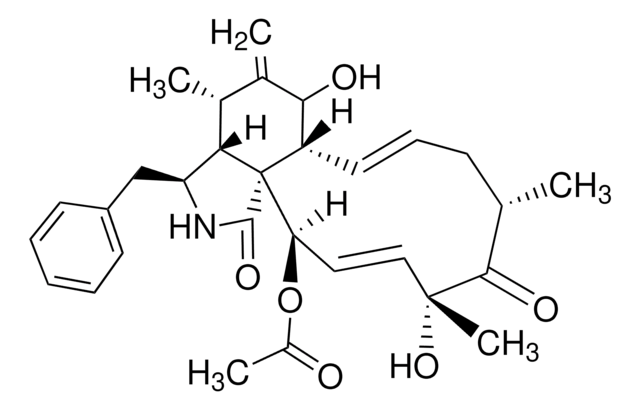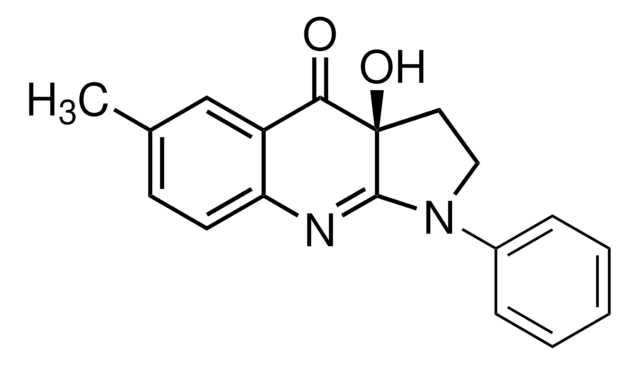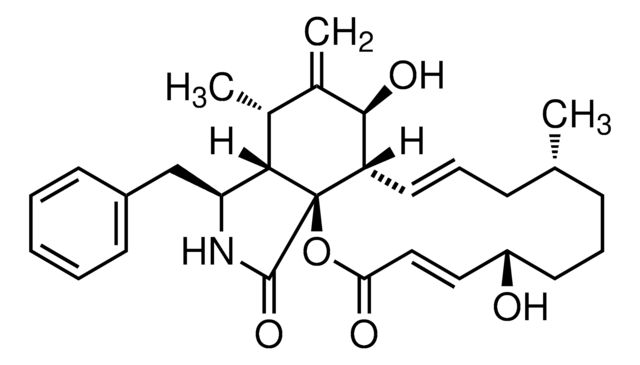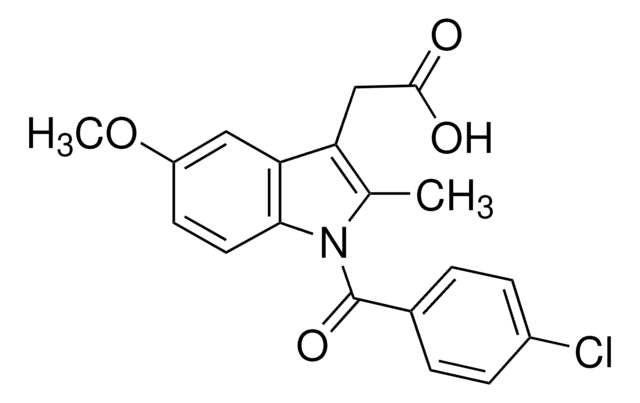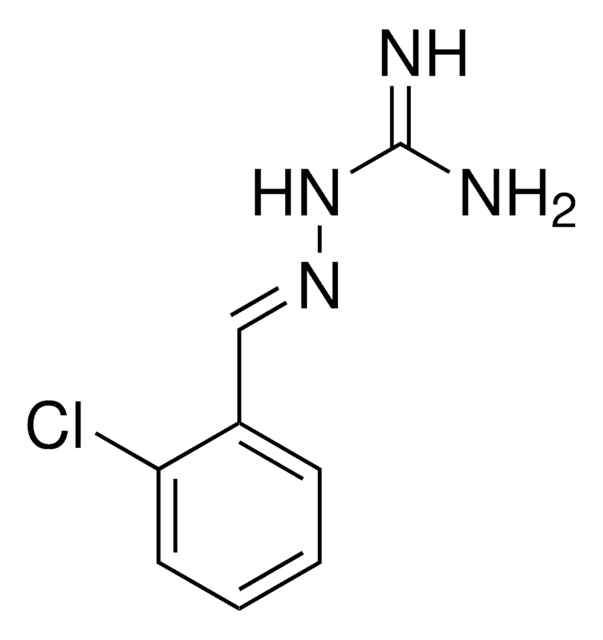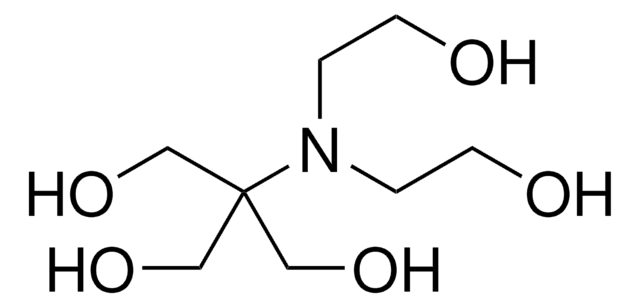C5552
Calyculin A
from sea sponge (Discodermia calyx), ≥90% (HPLC), solid, protein phosphatases types 1 and 2A inhibitor
About This Item
Recommended Products
product name
Calyculin A from Discodermia calyx, ≥90% (HPLC), solid
biological source
sea sponge (Discodermia calyx)
Quality Level
Assay
≥90% (HPLC)
form
solid
mol wt
~_1.0 kDa
color
white
mp
247-249 °C
solubility
DMSO: soluble
ethanol: soluble
storage temp.
−20°C
SMILES string
COC[C@@H]([C@H](O)[C@H](O)C(=O)NCC[C@H](C)c1nc(\C=C\C[C@@H]2O[C@]3(C[C@@H](O)[C@@H]2C)OC([C@H](C[C@H](O)[C@H](C)[C@H](O)[C@H](C)\C=C(C)\C(C)=C\C=C\C(C)=C/C#N)OC)[C@H](OP(O)(O)=O)C3(C)C)co1)N(C)C
InChI
1S/C50H81N4O15P/c1-29(20-22-51)16-14-17-30(2)32(4)24-33(5)42(57)35(7)38(55)25-41(65-13)45-46(69-70(61,62)63)49(8,9)50(68-45)26-39(56)34(6)40(67-50)19-15-18-36-27-66-48(53-36)31(3)21-23-52-47(60)44(59)43(58)37(28-64-12)54(10)11/h14-18,20,24,27,31,33-35,37-46,55-59H,19,21,23,25-26,28H2,1-13H3,(H,52,60)(H2,61,62,63)/b16-14+,18-15+,29-20-,30-17+,32-24+/t31-,33+,34-,35-,37-,38-,39+,40-,41-,42+,43-,44-,45+,46-,50+/m0/s1
InChI key
FKAWLXNLHHIHLA-YCBIHMBMSA-N
Looking for similar products? Visit Product Comparison Guide
General description
Application
- as an inhibitor of serine-threonine protein phosphatase 2A
- as an inhibitor of cyclin D1 phosphatase in human breast cancer cells
- as an inhibitor of protein phosphatase 2A (PP2A) and PP1 in mouse melanoma cell lines B16-F0 cells
Biochem/physiol Actions
Features and Benefits
Signal Word
Danger
Hazard Statements
Precautionary Statements
Hazard Classifications
Acute Tox. 3 Dermal - Acute Tox. 3 Inhalation - Acute Tox. 3 Oral - Skin Irrit. 2
Storage Class Code
6.1C - Combustible acute toxic Cat.3 / toxic compounds or compounds which causing chronic effects
WGK
WGK 3
Flash Point(F)
Not applicable
Flash Point(C)
Not applicable
Personal Protective Equipment
Certificates of Analysis (COA)
Search for Certificates of Analysis (COA) by entering the products Lot/Batch Number. Lot and Batch Numbers can be found on a product’s label following the words ‘Lot’ or ‘Batch’.
Already Own This Product?
Find documentation for the products that you have recently purchased in the Document Library.
Customers Also Viewed
Our team of scientists has experience in all areas of research including Life Science, Material Science, Chemical Synthesis, Chromatography, Analytical and many others.
Contact Technical Service